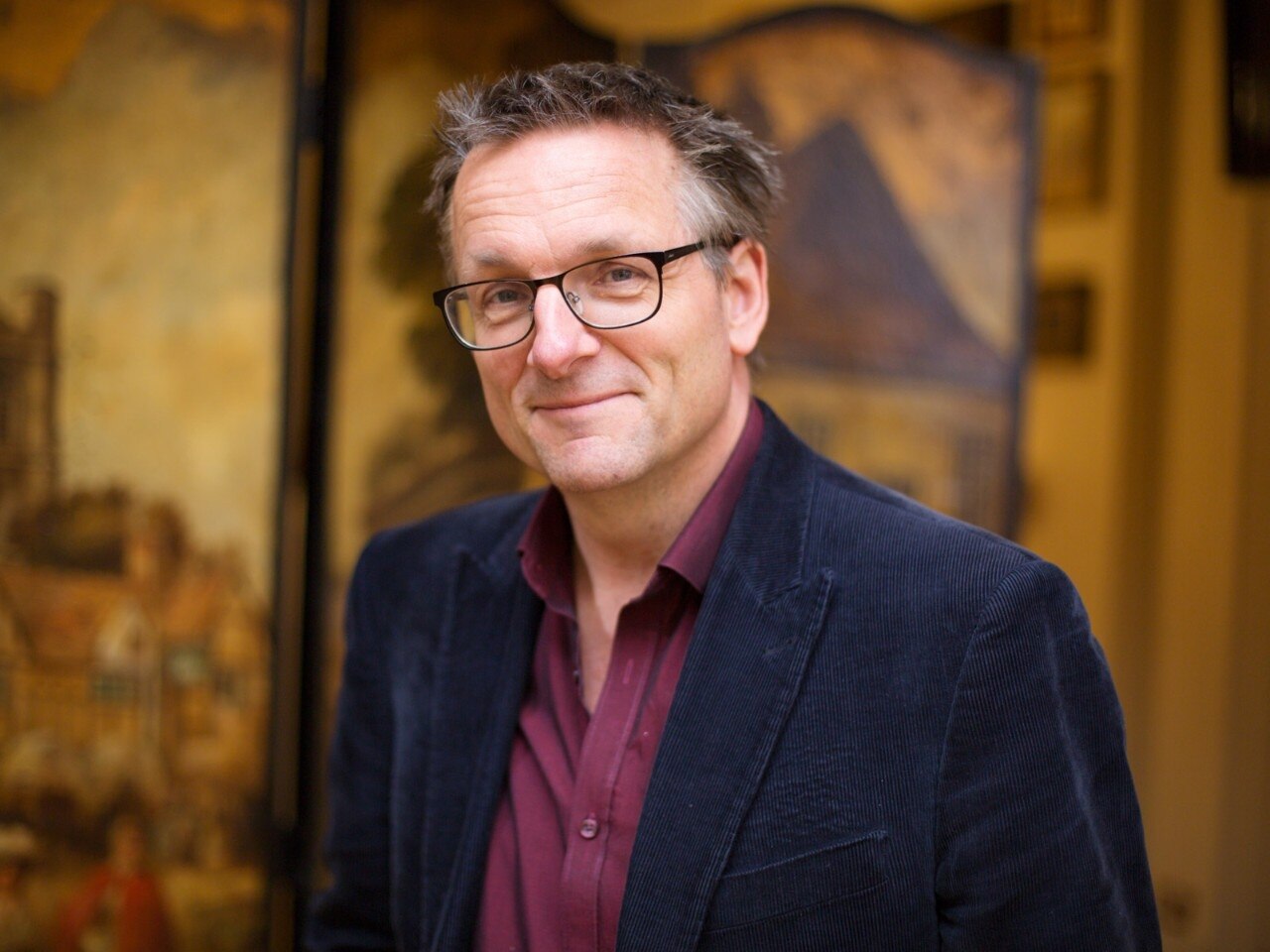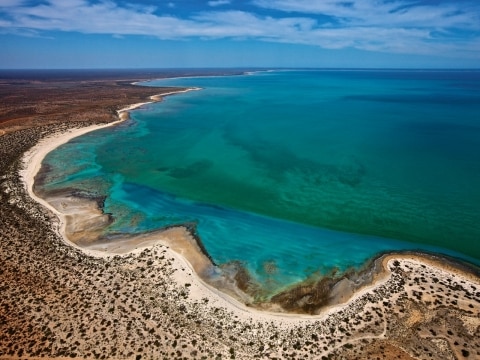The Curious Travel Experiences of Micheal Mosely

He’s eaten insects, imbibed jungle juice and been lost in the desert – all part of this science broadcaster and bestselling writer’s catalogue of curious experiences. Interview by Alison Boleyn.
Where are you right now?
I’m in Kimmeridge, Dorset, where my wife’s family has a cottage. Unfortunately, it’s a classic British summer’s day – grey and dull, with a bit of wind. I might go windsurfing.
What was your typical childhood holiday?
I spent the first two or three years of my life in Calcutta [now Kolkata] then we went to the Philippines and Hong Kong. I attended boarding school in England so a typical holiday was going to Hong Kong once a year to see my parents and to sail and play golf.
Was arriving in England a culture shock?
Absolutely. Being eight and going to boarding school in cold, wet Swanage, Dorset – it was very Dickensian. Every morning, you had to plunge into a concrete pool full of cold water before you went off to church.
What was the thinking behind that?
The cold plunge was to strengthen your body and church was to reinforce your soul.
Have you experienced any other culture shocks?
Going to Oxford University was a big culture shock. I encountered lots of people interested in the world of ideas and culture – things my school was not remotely interested in.
What about on the road?
When we were at medical school, my wife [Dr Clare Bailey] often worked with Save the Children and I’d join her in the jungle in Peru, travelling from village to village in a small boat to provide medical services. [Militant group] Sendero Luminoso was active and there was the threat of being snatched or murdered.
I recently went back to the jungle to have a special drink. The ladies of the village gather around and chew cassava then spit it into a large pot and let it ferment. The spit breaks down the starch and turns it into sugar then the bacteria and fungi in the atmosphere turn it into alcohol. It demonstrates just how ingenious humans are at making alcohol.
Have you had any other memorable dishes while travelling?
I’ve eaten a lot of insects. They’re very popular in the Far East. The Dutch are trying to rebrand locusts as “flying prawns”. A chef assured me that insects have a very high protein content, are ethical in terms of how they’re bred and take up little in the way of nutrients and water. Unfortunately, I’m not sure how soon they are going to take off – they’re quite dry and crunchy.
Is there a destination you keep returning to?
Perth. It’s where I made my first science documentary [Ulcer Wars], about an Australian, Barry Marshall, who famously swallowed the bacteria Helicobacter pylori to demonstrate that it causes ulcers. Barry [who won a Nobel Prize in 2005] proved you can cure what was regarded as an incurable disease within five days using antibiotics. He transformed hundreds of thousands of lives, including mine, because I got the idea of doing self-experiments. I’ve done an awful lot of them throughout my television career.
I also have friends from medical school who live in Perth. In my first year, the dean said that, statistically, four students in our class would marry [each other]. I met my wife that day and there’s another couple who lives in south-western Australia.
What’s your impression of Perth?
I find it incredibly dramatic. The longest road journey I’ve ever done was from Perth to Darwin when I was 11. My uncle, who headed a museum in Perth, was absolutely fanatical about animal anatomy. As we drove north, he would leap out of the car, find a dead kangaroo, cut off its head and stick it in the boot. By the time we got to Darwin, we had a fine collection of kangaroo skulls in the back of the car. We ripped up spinifex clumps, turned them upside down and slept on them. We went to Shark Bay [in Western Australia] and I remember days and days of driving down dusty roads and seeing extraordinary little towns. You could have steak and beer for breakfast; I didn’t get the beer but I got the steak.

What’s the worst place you’ve been lost?
When I was making the documentary about Barry, we were filming 200 miles [320 kilometres] north of Perth. For some reason, the crew flew back to Perth in a helicopter and I was left driving the car – this was at 9 o’clock at night and I was supposed to catch a plane in the morning. I got completely lost in the desert and ran out of petrol. I was thinking, “What am I going to do? I have no idea where I am,” when a military patrol came across me, filled up the car and led me in the direction of Perth. I have fond memories of that military patrol coming out of absolutely nowhere.
Which destination was a surprise to you?
Hong Kong. I recently went back for the first time in about 35 years. Parts of it look like something out of Blade Runner: you can travel for miles underground or way above the ground. But on the streets, the buying and selling is incredibly familiar.
Is there a place you could have given a miss?
There’s a small town in Tunisia that I can honestly say was the dustiest, most boring place I’ve ever seen. I thought I’d be able to see the Sahara but that particular bit of the Sahara is like a vast, empty car park.
When you walk into a hotel room, what’s the first thing you do?
I listen for trucks because I hate noise. But I’m not that bothered by hotel rooms one way or another. Once, in New York, there was a grand piano in my room. I can’t play so it was wasted on me but I was impressed. I also stayed at a hotel in Brazil where a tree grew through the room.
You have four adult children. Is there somewhere you want to travel with them?
I’d like to take them on safari because I’ve never been. Every year, if we can, we go skiing – in the French Alps, usually. There’s something terribly good about driving there; you stay somewhere nearby and then the next morning, as the sun rises, you drive into the Alps. My children like coming with me – particularly if I pay.
If you could be anywhere else in the world right now, where would it be?
I’d like to be in Perth – it’s got to be sunnier there. My friends would drag me off at 5am to run on the beach and have coffee afterwards. They’ve been members of a running group for 20 years and I feel like I know those people, too. The Perth lifestyle is that you get up early and, you know, do stuff. It’s the perfect climate for it. Also, being able to run on the beach with the sun rising is kind of fabulous. 
SEE ALSO: Physicist Brian Cox Shares His Favourite Places on Earth


